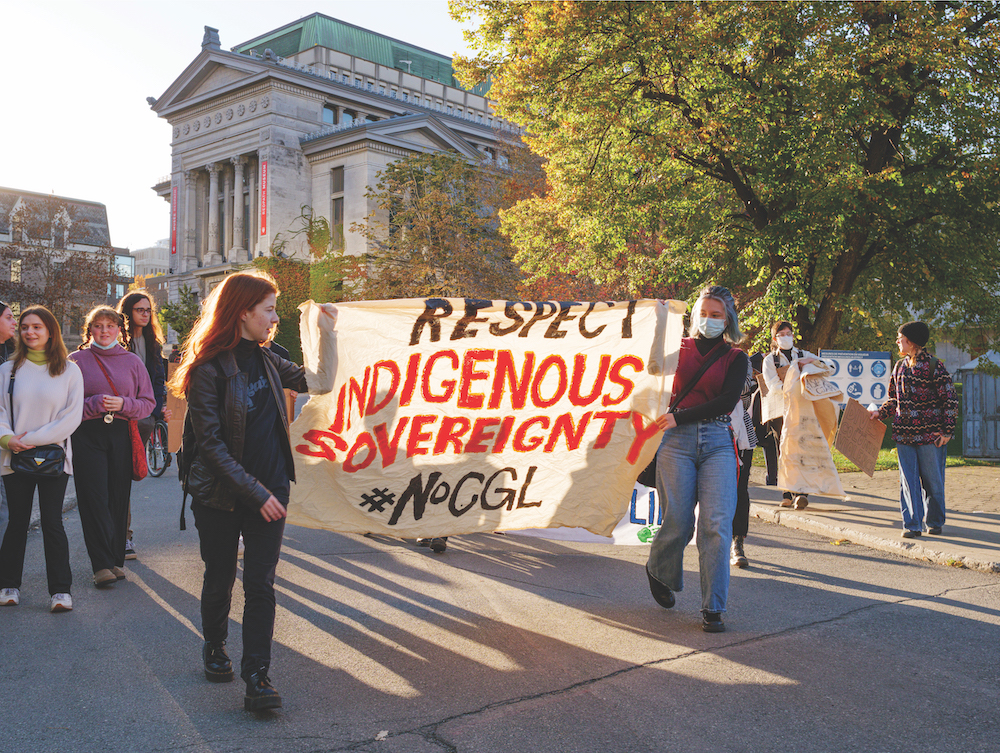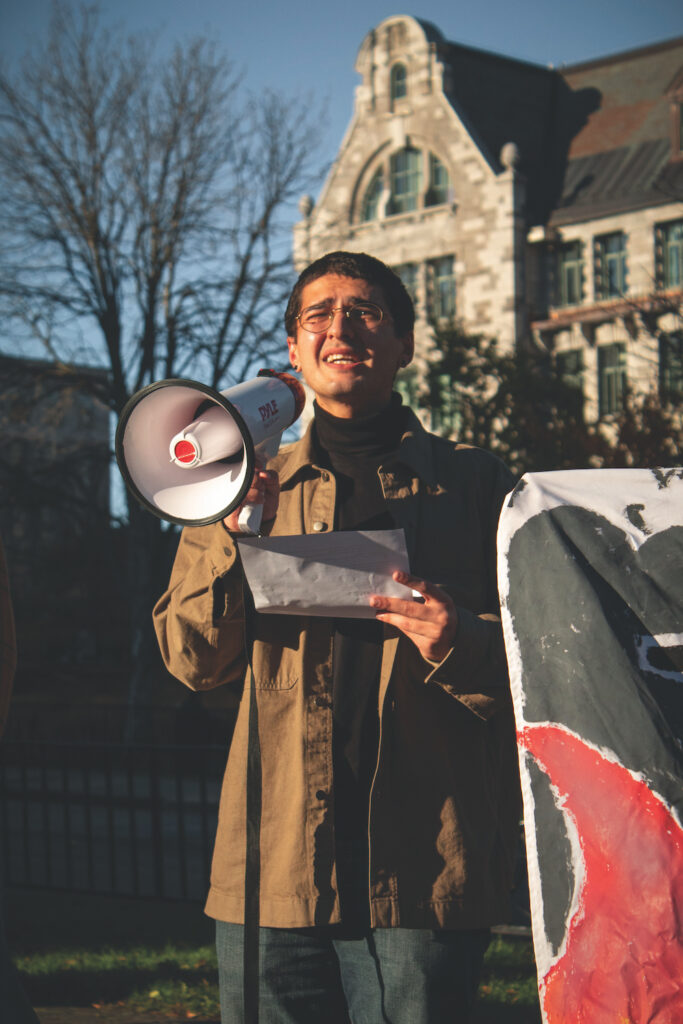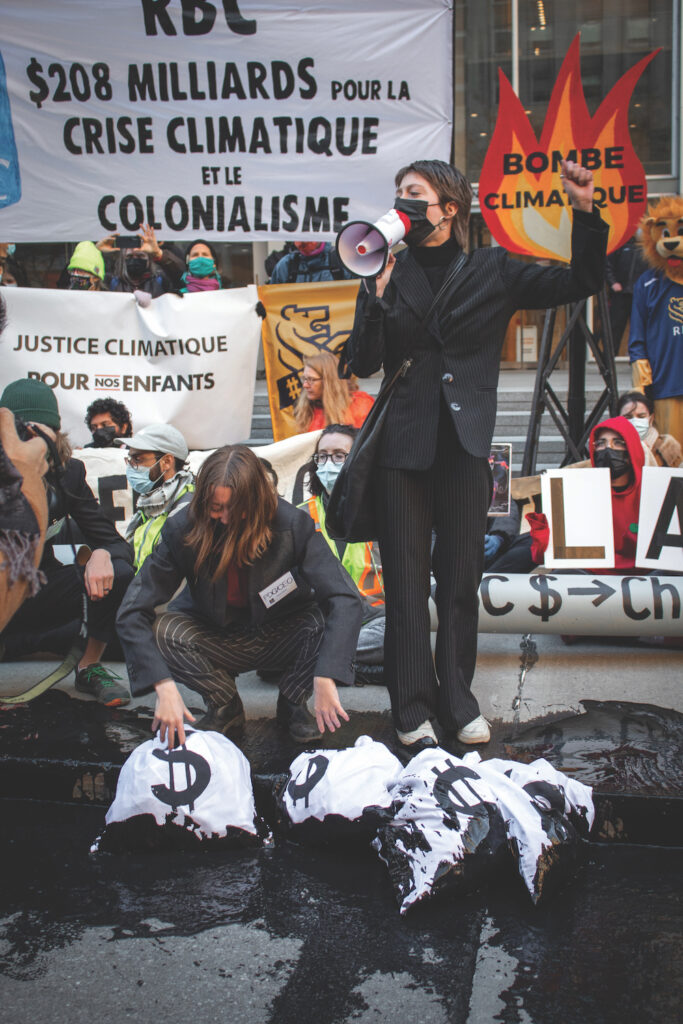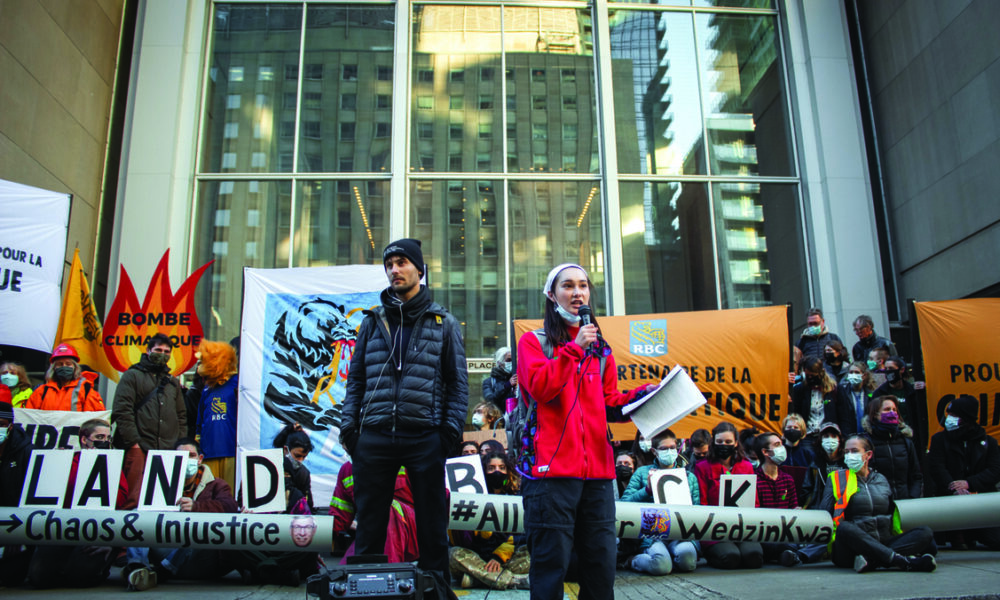Members of Divest McGill, along with other McGill students, joined local climate action organizations such as Extinction Rebellion Quebec and Greenpeace Quebec on Oct. 29 in front of the Royal Bank of Canada (RBC) office at 1 Place Ville Marie, protesting the bank’s investments in fossil fuels.
In front of the building, protestors used their outfits, signs, banners, and shouts to signal their discontent over the bank’s investment. Many showed up in costume, dressed as investment bankers, pipeline workers, and even the RBC lion. Others poured black paint onto the sidewalk in front of the bank, to symbolize oil spilling out of the pipeline.
Louis Ramirez, a national organizer with the Banks Campaign of the Sunrise Project—a project that supports social movements that are working toward transitioning from fossil fuels to renewable energy—spoke at the protest. Ramirez translated and delivered a speech written by Emily Hardie, U0 Arts and Divest member, about their shared grievances against RBC. Ramirez explained the importance of directing climate action toward banks in an interview with The McGill Tribune.

“Capital is almost as responsible as anyone else for the climate crisis and for [the] colonial crises we are facing today,” Ramirez said. “Among these institutions, RBC is the worst.”
RBC is Canada’s number one bank financing fossil fuels and number five in the world, according to the Banking on Climate Chaos 2021 report. It has invested approximately $208-billion dollars in the fossil fuel industry since the signing of the 2015 Paris Climate Agreement. While other banks also partake in fossil fuel investment, Divest members, including Sophie O’Reilly, U3 Arts, believe that going after the largest investor in Canada will send a powerful message.
“Calling on RBC to divest from fossil fuels will set an example [for] other banks,” O’Reilly said. “It’s one of the biggest, so [RBC divesting] will revoke the social license to continue investing in the fossil fuel industry. Other banks will follow their lead, and potentially, [so will] other organizations, such as universities.”

Protestors emphasized the impact these investments have on Indigenous communities. RBC invests heavily in TC Energy, a company that is currently building a pipeline that runs through the Wet’suwet’en nation without their consent. In her speech, Hardie stood in solidarity with the Wet’suwet’en and urged attendees to join their struggle against the pipeline.
“In planning this event, we are turning up as allies of a different nation, the Wet’suwet’en, who are fighting against a pipeline that threatens to ruin their homeland,” Hardie said. “With their permission, we are rallying behind their message, ‘RBC is killing me,’ which is no metaphor, as the land threatened by RBC’s investments is their very basis of survival.”
Divest McGill members and other students met at the Y-intersection on campus ahead of the protest. After listening to several speeches from Divest members, students made their way toward RBC, chanting slogans like “RBC get off it, injustice lines your pockets, you’re making dirty profits, divest from all that’s toxic,” as they marched.

At the Y-intersection, Mikael Branch, U3 Arts and Divest member, emphasized that the protest was an important step not only in safeguarding the environment, but in protecting Indigenous sovereignty and livelihoods.
“We encourage [you], most importantly, to learn from and listen directly to the voices of Wet’suwet’en leaders, such as members from the Gidimt’en clan,” Branch said. “This is the true meaning of solidarity and reconciliation. Spread the word. Share the hashtag #RBCiskillingme. Let people know about the atrocities being committed today against the Wet’suwet’en Nation. Now is the time. We the people, united, can make a difference.”








